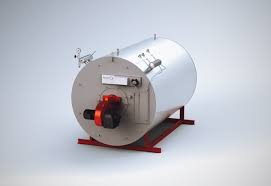
12월 . 12, 2024 11:14 Back to list
thermal fluid boiler
Understanding Thermal Fluid Boilers An Overview
Thermal fluid boilers are essential systems used in various industrial applications that require efficient heat transfer and temperature control. Unlike traditional steam boilers, thermal fluid boilers operate using a heat transfer fluid (HTF) that circulates through the system, allowing for a more versatile range of temperature management without the need for high-pressure steam. This article explores the functionality, advantages, applications, and considerations related to thermal fluid boilers.
What is a Thermal Fluid Boiler?
A thermal fluid boiler is designed to generate heat by utilizing a specialized fluid that absorbs thermal energy and circulates it through process equipment or industrial facilities. The heat transfer fluid, typically a synthetic oil or organic substance, can operate at much higher temperatures than water, often exceeding 300°C (572°F), without reaching high pressures. This unique characteristic makes thermal fluid boilers highly efficient for specific applications.
How Do Thermal Fluid Boilers Work?
The operation of a thermal fluid boiler is straightforward yet effective. The boiler heats the heat transfer fluid via an indirect heat exchange method, using either gas, oil, or biomass as fuel sources. Once heated, the HTF circulates through the system, passing through the heat exchangers and supplying energy to various processes before returning to the boiler to be reheated.
This process eliminates the need for steam generation, thus reducing the overall pressure within the system. This feature minimizes risk and enhances safety since high-pressure steam systems can often lead to hazardous situations.
Advantages of Thermal Fluid Boilers
1. Higher Efficiency Thermal fluid boilers can reach higher operating temperatures without the corresponding pressure increase that affects traditional steam boilers. This feature allows for more efficient heat transfer processes and reduced energy consumption.
2. Flexibility These boilers can be tailored to various applications, including heaters, chillers, and industrial ovens. Their design accommodates a wide range of temperatures and heating requirements.
3. Safety Operating at lower pressures mitigates the risk of explosions and other hazards associated with high-pressure steam systems. This safety aspect is particularly beneficial in industries where personnel safety and equipment integrity are of utmost importance.
thermal fluid boiler

5. Environmental Benefits Many thermal fluid boilers can utilize renewable biomass sources or low-emission fuels, contributing to an organization’s sustainability efforts by reducing their carbon footprint.
Applications of Thermal Fluid Boilers
Thermal fluid boilers find applications in a wide range of industries, including
- Chemical Processing Used for heating reactors and distillation columns, where precise temperature control is vital. - Food Processing Ensures consistent heating for processes like sterilization and cooking without compromising food quality. - Textiles Provides the necessary heat for drying fabrics and textiles efficiently. - Plastics and Rubber Maintains the required temperatures for molding and extrusion processes. - Pharmaceuticals Supports stringent temperature control essential for product quality and safety.
Considerations for Installation and Operation
While thermal fluid boilers offer numerous benefits, it is essential to consider several factors during installation and operation
- Fluid Selection Choosing the right heat transfer fluid is critical, as it must withstand high temperatures and pressures and be compatible with system materials. - Regular Maintenance Although these systems tend to require less maintenance, periodic inspections, and fluid testing are necessary to ensure optimal performance. - System Design Proper design and layout of the boiler systems and associated piping must be undertaken to minimize energy loss and maximize efficiency.
Conclusion
Thermal fluid boilers represent a versatile and efficient solution for industries requiring high-temperature heat transfer. Their advantages in safety, efficiency, and flexibility make them a preferred choice for many industrial applications. As industries continue to demand higher performance with lower environmental impact, thermal fluid boilers stand out as a viable option that meets evolving needs while enhancing operational efficiencies.
-
High-Efficiency Commercial Oil Fired Steam Boiler for Industry
NewsJul.30,2025
-
High-Efficiency Biomass Fired Thermal Oil Boiler Solutions
NewsJul.30,2025
-
High Efficiency Gas Fired Thermal Oil Boiler for Industrial Heating
NewsJul.29,2025
-
High-Efficiency Gas Fired Hot Water Boiler for Sale – Reliable & Affordable
NewsJul.29,2025
-
High Efficiency Biomass Fired Hot Water Boiler for Industrial and Commercial Use
NewsJul.29,2025
-
High-Efficiency Biomass Fired Hot Water Boiler for Industrial Use
NewsJul.28,2025
Related PRODUCTS






















